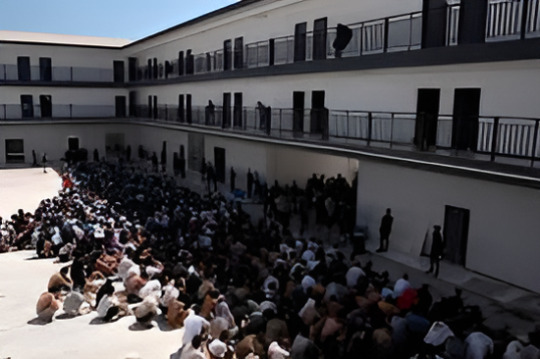#cyber fraud call
Explore tagged Tumblr posts
Text
शातिरों ने 'कौन बनेगा करोड़पति' के नाम पर युवक से ठगे 11 लाख रुपए, फेसबुक लिंक से वारदात को दिया अंजाम
Hamirpur News: हिमाचल प्रदेश के हमीरपुर (Hamirpur) में एक युवक के साथ बेहद शातिर अंदाज में ठगी कर ली गई. यह मामला ख्याह गांव का है. यहां युवक से ‘कौन बनेगा करोड़पति’ में साढ़े आठ लाख के कैश प्राइज के नाम पर 11 लाख की ठगी हो गई. इस मामले की शिकायत पीड़ित ने पुलिस से की. पुलिस ने केस दर्ज कर मामले की जांच शुरू कर दी है. जानकारी के अनुसार, पीड़ित युवक हमीरपुर के ख्याह गांव का रहने वाला है, जो…
#crypto cyber fraud#cyber#cyber attack#cyber crime#cyber crime in india#cyber fraud#cyber fraud alert#cyber fraud call#cyber fraud cases#cyber fraud in india#cyber fraud law#cyber fraud laws#cyber fraud new ways#cyber fraud news#cyber fraud on call#cyber frauds#cyber frauds in india#cyber frauds mewat#cyber security#delhi cyber fraud#duped#Facebook link#fraud#jamtara cyber frauds#kanpur cyber fraud#Kaun Banega Crorepati#new way of cyber fraud#online fraud#report cyber fraud#swindlers
0 notes
Text
I received a very creepy -scam- ransom message via 'myself' about "being a pervert" and "I have spyware on your devices and have videos of you jerking off and if you don't send me cypto I will post them."
First, my webcam is covered so all you'd see is blurr second, I can not 'jerk it'. Should have used 'masturbating' you fool.
I'd find this a lot funnier if they did not send if from my own account.
#my post.#called non emergency and said they could not do anything (of course)#told to call fraud and cyber crime- they did not pick up#sent in a online complaint#we will see what happens my fellow perverts
10 notes
·
View notes
Text
बिना ब्याज लोन का झांसा देकर 1 करोड़ 14 लाख रूपये की ठगी
Mumbai Cyber Fraud: मुंबई के साइबर क्राइम पुलिस ने दिल्ली की एक नकली कॉल सेंटर पर छापामारी कर करोड़ों रुपये के फर्जीवाडे का खुलासा किया है। जो नकली मुहर और डॉक्यूमेंट बनाकर आम लोगों को ठगी का शिकार बनाते थे। (1 crore 14 lakh rupees were defrauded by giving the false promise of interest free loan) Mumbai Cyber Crime: मुंबई पुलिस की साइबर क्राइम विभाग ने दिल्ली में फर्जी कॉल सेंटर चलाने वाले एक…
#1 crore 14 lakh rupees were defrauded by giving the false promise of interest free loan#bajaj finance#Big news#Bombay#Bombay news#Breaking news#Cyber Crime#delhi call centre#Delhi crime news#fake call centre#Fasttrack#fasttrack news#Hindi news#Indian Fasttrack#Indian Fasttrack News#Latest hindi news#Latest News#latest news update#Maharashtra big news#Maharashtra News#Mumbai Cyber Cell#Mumbai Cyber Crime#Mumbai Cyber Fraud#Mumbai News#Mumbai police#News#News in Hindi#News updates#TODAY&039;S BIG NEWS#yes bank
1 note
·
View note
Text
TRAI Alert: KYC और SIM बंद होने की फर्जी कॉल से सावधान रहें, नहीं तो खाली हो सकता है बैंक अकाउंट
BETULHUB डेस्क |टेलीकॉम रेगुलेटरी अथॉरिटी ऑफ इंडिया (TRAI) ने देशभर के मोबाइल यूजर्स को एक महत्वपूर्ण चेतावनी जारी की है। अगर आपको भी कोई कॉल KYC अपडेट या SIM बंद होने की बात कहे, तो सावधान हो जाएं, क्योंकि यह एक नया साइबर फ्रॉड है जिससे आपका बैंक अकाउंट खाली हो सकता है। TRAI ने किया बड़ा खुलासा TRAI ने साफ कर दिया है कि वह कभी भी KYC अपडेट या सिम बंद करने के लिए कॉल नहीं करता। साथ ही TRAI को…
1 note
·
View note
Text
سائبر اور فون کال فراڈ؛ محتاط رہیے

پاکستان میں جہاں لوگ ڈکیتی کی وارداتوں سے پریشان ہیں، وہیں سائبر کرائمز میں بھی بہت تیزی سے اضافہ ہو رہا ہے۔ ان دنوں ایک نئے قسم کے فراڈ سے لٹیروں نے کئی لوگوں کو اپنی رقم سے محروم کر دیا۔ اس نئی طرز کے فراڈ میں ملوث افراد واردات کے لیے عام شہریوں کو کال کرتے ہیں۔ انتہائی تشویشناک بات یہ ہے کہ ان لوگوں کے پاس عوام کا ڈیٹا بھی موجود ہوتا ہے جس سے یہ بات ظاہر ہوتی ہے کہ ان کا ریکی کا نظام بہت منظم ہے یا پھر ان افراد کی موبائل ریکارڈز تک رسائی ہے۔ ٹیلی فونک فراڈ میں ملوث نوسرباز اکثر اپنے آپ کو پولیس افسر ظاہر کرتے ہیں۔ یہ کسی بھی شخص کو کال ملا کر اسے اس کے نام سے پکارتے ہیں اور بعد ازاں اسے یہ بتاتے ہیں کہ ’’آپ کے خاندان کا کوئی فرد ہمارے قبضے میں ہے، ہم تھانے سے بات کررہے ہیں‘‘۔ یہ گروہ اس قدر پلاننگ سے کام کرتا ہے کہ جس شخص کے متعلق یہ بتارہے ہوتے ہیں یہ افراد کال پر اس کی آواز بھی سناتے ہیں، جس میں وہ رو رو کر خود کو بچانے کی درخواست کر رہا ہوتا ہے۔ ایسی صورتحال میں جسے کال کی جاتی ہے اس کے اعصاب پر مکمل طور پر قابو پانے کے بعد اس سے پیسوں کو مطالبہ کیا جاتا ہے اور اسے یہ کہا جاتا ہے کہ اگر مقدمہ درج نہیں کرانا چاہتے تو پیسوں کا انتظام کرو ورنہ یا تو اسے مار دیا جائے گا یا اس کیس میں حوالات میں ڈال دیا جائے گا۔
اس فراڈ میں ملوث افراد شہریوں سے ان کی حیثیت کے مطابق لاکھوں روپے تک بٹورنے کی کوشش کرتے ہیں۔ کراچی جیسے بڑے شہر میں بھی کئی افراد اس فراڈ کا شکار ہو چکے ہیں۔ انجان کال کا یہ طریقہ واردات اس طرح سے ترتیب دیا گیا ہے کہ متاثرہ شخص کو سوچنے سمجھنے کا وقت ہی نہیں ملتا اور اس سے اچھی خاصی رقم بٹور لی جاتی ہے۔ بین الاقوامی ادارے کی تحقیق کے مطابق ایف آئی اے اہلکاروں کا کہنا ہے کہ اس نوعیت کے فراڈ میں ملوث اس گروہ میں سے اکثر افراد کا تعلق حافظ آباد، فیصل آباد، سرگودھا اور لاہور سے ہے۔ سرکاری ریکارڈ کے مطابق فون کالز سے کیے جانے فراڈ کے کیسوں کی تعداد اب ہزاروں میں پہنچ چکی ہے۔ واضح رہے کہ سائبر کرائم ونگ میں اب فائیننشل فراڈ کے کیسوں کی تعداد میں اضافہ ہو رہا ہے۔ ایسے کیس جعلی سم اور جعلی اکاؤنٹس کی وجہ سے بڑھ رہے ہیں، جن کی بدولت یہ گروہ شہریوں کا ریکارڈ باآسانی حاصل کر لیتے ہیں۔ سائبر کرائم نے ٹیلی کام کمپینوں کے عملے کے ایسے کئی افراد کو گرفتار بھی کیا ہے جو ڈیٹا فراہم کرنے میں ملوث ہیں۔

یہ فراڈیئے کال کرتے ہوئے وی پی این ایپلی کیشن سے اپنی کالر لوکیشن تبدیل کر لیتے ہیں جس کے باعث ان کے مقام کا معلوم کرنا کسی حد تک مشکل ہو جاتا ہے۔ ایسا بھی ہوتا ہے کہ یہ لوگ اسمارٹ فون کے بجائے سادہ فون کا استعمال کرتے ہیں اور واردات کے بعد اسے ضائع کر دیا جاتا ہے۔ یہ لوگ ایک ہی دن میں سیکڑوں نمبرز پر کال کرتے ہیں جبکہ ان کی کامیابی کی شرح 8 سے دس فیصد ہے۔ ٹیلی فون کال سے فراڈ کرنے والے کئی افراد جنھیں ایف آئی اے نے گرفتار بھی کیا اور انہیں سزائیں بھی ہوئی ہیں۔ صرف گزشتہ سال 500 سے زیادہ افراد کو گرفتار کیا گیا لیکن اس کے باوجود ان وارداتوں میں کمی نہیں آرہی۔ یقینی طور پر اس فراڈ میں ملوث افراد کا تعلق بھی آئی ٹی کے شعبوں سے ہو گا۔ ملک میں بے روزگاری کی وجہ سے جرائم کی شرح بڑھ رہی ہے۔ حکومتی سطح پر نوجوانوں کو تکنیکی تعلیم تو دی جارہی ہے لیکن ملازمت کے مواقعے موجود نہیں، جس کے نتائج اسی طرح نکلیں گے۔ جہاں حکومت اور ادارے ان افراد کو گرفتار کر کے کڑی سے کڑی سزا دیں، وہیں اس بات کی بھی کوشش کریں کہ آئی ٹی اور ہیکنگ کے ماہر نوجوانوں کو ملازمت کی فراہمی کو بھی یقینی بنایا جائے تاکہ وہ کسی منفی سرگرمی میں شامل نہ ہوں۔
یہاں یہ بات اہم ہے کہ عام شہری اس فراڈ سے کیسے بچیں؟ شہریوں کو اس طرح کے فراڈ سے بچنے کےلیے خود بھی محتاط رہنا ہو گا۔ شہریوں کو چاہیے کہ فون کال پر کسی بھی قسم کی ذاتی معلومات فراہم نہ کریں اور اگر کسی کے اغوا یا گرفتاری کے متعلق کوئی کال آئے تو سب سے پہلے اس شخص سے رابطہ کریں اور تصدیق کے بعد قانون نافذ کرنے والے اداروں سے رابطہ کریں۔ یہ افراد ایسے سافٹ ویئرز کا استعمال بھی کرتے ہیں جس سے نمبر بظاہر یو اے این لگتا ہے۔ اس حوالے سے بینک انتظامیہ کئی بار ہدایات جاری کر چکی ہیں کہ بینک کسی قسم کی ذاتی معلومات ٹیلی فون پر نہیں لیتا۔ شہریوں کو اس بات کو ذہن نشین کرنا ہو گا۔ آج کے اس جدید دور میں بھی معصوم لوگ ٹی وی چینلز کے گیم شو کے نام پر لٹ رہے ہیں، عوام کو اب احتیاط سے کام لینا ہو گا ورنہ مشکل حالات میں مزید پریشانی کا سامنا کرنا پڑسکتا ہے۔
شہریار شوکت
بشکریہ ایکسپریس نیوز
1 note
·
View note
Text
work wife | isack hadjar social media au
pairing: isack hadjar x fem rb social media admin reader
is it the pressure of wanting to make an impression that makes him do all of those stupid tiktoks or is it the one holding the camera?
MASTERLIST | TIP JAR
isackhadjar



liked by yourusername, liamlawson30 and 109,392 others
isackhadjar: another weekend of kicking ass, lighting up tiktok and supplying the pastries
view all comments
user1: that’s MY tiktok star
user2: the kardashians are gonna have to sue for identity fraud real soon
user3: he’s got the ass to match as well
yourusername: real
isackhadjar: is this not workplace harassment
yourusername: please don’t sue me, i’m broke enough as it is
isackhadjar: lawyer up babe
yourusername: i thought i was allowed to comment on your peach as your work wife
isackhadjar: i’ll check with HR
yourusername: chat am i cooked?
user4: who is this girl
user5: bro she’s the RB social admin
user6: she calls his ass fat and forces him to do those tiktoks… we might have to send her to the electric chair
yourusername: FORCE?
isackhadjar: okay… only i can slander my work wife, those tiktoks are completely consensual
user7: oh i know those two are a nightmare to work with
user8: what’s worse: having to film those videos or having to third wheel
liamlawson30: if i speak i am in big trouble
yourusername: LIAM?
liamlawson30: turns out i am in trouble regardless
yourusername: anyway… thank you for the croissants… and the points i guess
isackhadjar: just making your live tweet job a little easier
yourusername: you’re just so generous
isackhadjar: for you? of course
user9: are we interrupting
yukitsunoda0511: just leave them be, they’ll be ignoring us anyway

yourusername



liked by liamlawson30, isackhadjar and 3,029 others
yourusername: a weekend posting f1 reels from the pool
view all comments
user12: wait who was going to tell me that admin was this cute
user13: yall are late i’ve been camped here for months
user14: are we flexing how long we’ve been stalking the admin of an f1 page?
user13: yes
isackhadjar: so it’s true… you really don’t care about me once you’ve left the paddock
yourusername: what? no!!!!!
isackhadjar: well are the postal services on strike? where was my invite?
yourusername: you’re mr money bags in this relationship, you could’ve flown yourself
yourusername: i’ve been saving for this trip for TIME
isackhadjar: i didn’t know that was an option…
olliebearman: omg just say you wanted her to invite you personally
isackhadjar: ??????? what are you doing here
olliebearman: this is a public comment section and you’re embarrassing yourself
yourusername: woah careful how you’re speaking on my work husband
olliebearman: how about you make him your real husband so he stops making it our problem
isackhadjar: i did not make it your problem
kimiantonelli: your diary did
isackhadjar: YOU READ MY DIARY
isackhadjar: i mean JOURNAL
yourusername: no bullying my man in my comment section
yourusername: make it in RB’s comment section please
isackhadjar: Y/N?
yourusername: i need the engagement to pay my salary !
isackhadjar: okay i guess…
user14: is this a bit or is he actually so down bad that he’ll let people cyber bully him?
user15: i mean look at the material… i’d be doing worse for a woman like that
user16: we need her in front of the camera more often
yourusername: aren’t you all smooth talkers…
isackhadjar: this post is now formally my suicide note
yourusername: stop being so dramatic, you know you’re my favourite
isackhadjar: of all time or just in the paddock
yourusername: okay babe let’s stop fishing now
liamlawson30



liked by maxverstappen1, alexalbon and 178,309 others
tagged: yourusername & isackhadjar
liamlawson30: formula one driver or professional third wheel - everyone’s favourite gameshow
view all comments
user17: who is providing more y/nisack propaganda: isack or liam
user18: isack is flexing it but liam is posting it at gunpoint
user19: who is holding the gun
user20: isack
isackhadjar: yes, it is that deep
isackhadjar: who said that?
gabrielbortoleto: my condolences liam
yourusername: excuse you?
isackhadjar: you can be mean to me but i draw the line at being mean to y/n
gabrielbortoleto: i’ll be mean to both of you because the five (5) minutes i spent around you two earlier was unbearable
yourusername: isack literally bought you a coffee?
gabrielbortoleto: first of all, it was the RB hospitality so he did not have to pay. second of all, i couldn’t stomach my coffee over all of the tension. seriously how do you people get anything done?
yourusername: are you doubting my professionalism?
yourusername: god forbid a girl jokes with her friends at work
isackhadjar: isack hadjar found dead at 20 in his paris apartment
user21: this is getting a wee bit sad
user22: i think girlypop is trying not to get a one way trip to the HR office
user23: for real… i’ve seen the tension through the screen
liamlawson30: she wants that cookie bad
yourusername: LIAM???
maxverstappen1: i found isack and y/n’s dynamic quite charming actually
liamlawson30: that’s just because y/n is an OG max stan so she doesn’t make you do any of the dumb challenges
yourusername: guilty
maxverstappen1: as she should be
isackhadjar: i thought you were an isack stan
yourusername: i am! but why would i miss out on seeing your face in front of my camera
isackhadjar: hehhehehehehehehehe

yourusername



liked by maxverstappen1, olliebearman and 38,904 others
tagged: isackhadjar
yourusername: all the isack photos on admin’s phone that she can’t post on main
view all comments
user27: HOLY MOLY
user28: is this safe for work
user29: goodbye to the best RB admin in the world there’s no way you have a job after this post
user30: i will personally fight RB if they force her to leave
isackhadjar: well this is not what he discussed
yourusername: chat is it illegal to flex your handsome boyf
isackhadjar: i thought maybe our super romantic picture at the eiffel tower would be a cute inclusion
yourusername: sorry i got excited …
isackhadjar: i’d do the same but unfortunately that’s for my eyes only
yourusername: there’s more where they came from
isackhadjar: YIPEE!!
liamlawson30: how is this guy in a relationship?
isackhadjar: it’s called being a nice, handsome guy who WILL practice his lipsyncing in the mirror
yourusername: emphasis on handsome
yourusername: omg i can’t believe that’s my man
yourusername: hashtag winner
user31: what has happened to my beautiful sport
yourusername: awwwwww is someone mad i get to kiss the man and you don’t
user32: omg she’s on smoke
user33: HR be damned
yourusername: HR were the first people to know i fear
yourusername: i can’t believe i was ready to lose my dream job for a MAN
isackhadjar: am i not… worth it?
yourusername: oh 100% but my parents would’ve killed me and then you
isackhadjar: but you still had a job so they love me, right?
isackhadjar: THEY LOVE ME, RIGHT?
yourusername: of course!
isackhadjar: good because my parents love you more than they love me at this point
kimiantonelli: WHY DID YOU THINK WE NEEDED TO SEE THIS?
yourusername: so people know i have GAME
olliebearman: first we had to suffer through your weird phase and now this whoring
yourusername: hey! only i can call isack a whore 😞
isackhadjar: amongst other things
liamlawson30: LEAVE US OUT OF THIS SMUT
user34: no please keep going
yourusername: don’t think of my boyfriend like that
isackhadjar: don’t think of my girlfriend like that
isackhadjar



liked by liamlawson30, lewishamilton and 409,208 others
tagged: yourusername
isackhadjar: upgraded my work wife to girlfriend (wife coming soon)
view all comments
user35: warning: do not try this at home you will actually lose your job
user36: i hope they still make him do all the dumb tiktoks
liamlawson30: believe me, they will. it’s like some weird foreplay for them
yourusername: are you actually trying to get me fired?
liamlawson30: no but you two are little freaks
isackhadjar: that’s a compliment to me
lewishamilton: congratulations to the new couple in the paddock
isackhadjar: OH MY FUCKING GOD
yourusername: being shown up in my own relationship already, you hate to see it
lewishamilton: ???
isackhadjar: thank you lewis! you’ll have to come visit us in paris some time!
yourusername: will i be demoted to the couch that weekend?
isackhadjar: no?
lewishamilton: i don’t really know what’s going on here, just happy that you guys are happy
yourusername: thanks lewis!
yourusername: but a threesome is not completely out of the question right?
lewishamilton: i could be your father, both of you. no.
yourusername: worth a try
pepemarti: can’t believe you forgot about me
isackhadjar: just because i have a girlfriend doesn’t mean i can’t have my husband
yourusername: right.
isackhadjar: no I DIDN’T MEAN THAT
pepemarti: i see 😞
isackhadjar: what is going on
yourusername: nonsense in this comment section aside, i love you baby!!!
isackhadjar: i love you too cherie xx
yourusername: if you get points again this weekend you can choose what nonsense i make you do next
isackhadjar: wow what a prize
yourusername: well i can promise other things, but we really should keep it professional in public
kimiantonelli: you just proposed a threesome to lewis
yourusername: GET OUT OF OUR BUSINESS
isackhadjar: i’ll take the deal for both
yourusername: get to racing then pretty boy
fin.
note: i love me some isack hadjar and i can't believe this is the first time i've written for him !!!
#f1 imagine#f1 x reader#f1 instagram au#f1 x you#f1#f1 social media au#f1 fanfic#isack hadjar#isack hadjar x reader#isack hadjar x you#isack hadjar imagine#isack hadjar fluff#isack hadjar fic#isack hadjar instagram au#isack hadjar social media au
1K notes
·
View notes
Text
How I got scammed

If you'd like an essay-formatted version of this post to read or share, here's a link to it on pluralistic.net, my surveillance-free, ad-free, tracker-free blog:
https://pluralistic.net/2024/02/05/cyber-dunning-kruger/#swiss-cheese-security

I wuz robbed.
More specifically, I was tricked by a phone-phisher pretending to be from my bank, and he convinced me to hand over my credit-card number, then did $8,000+ worth of fraud with it before I figured out what happened. And then he tried to do it again, a week later!
Here's what happened. Over the Christmas holiday, I traveled to New Orleans. The day we landed, I hit a Chase ATM in the French Quarter for some cash, but the machine declined the transaction. Later in the day, we passed a little credit-union's ATM and I used that one instead (I bank with a one-branch credit union and generally there's no fee to use another CU's ATM).
A couple days later, I got a call from my credit union. It was a weekend, during the holiday, and the guy who called was obviously working for my little CU's after-hours fraud contractor. I'd dealt with these folks before – they service a ton of little credit unions, and generally the call quality isn't great and the staff will often make mistakes like mispronouncing my credit union's name.
That's what happened here – the guy was on a terrible VOIP line and I had to ask him to readjust his mic before I could even understand him. He mispronounced my bank's name and then asked if I'd attempted to spend $1,000 at an Apple Store in NYC that day. No, I said, and groaned inwardly. What a pain in the ass. Obviously, I'd had my ATM card skimmed – either at the Chase ATM (maybe that was why the transaction failed), or at the other credit union's ATM (it had been a very cheap looking system).
I told the guy to block my card and we started going through the tedious business of running through recent transactions, verifying my identity, and so on. It dragged on and on. These were my last hours in New Orleans, and I'd left my family at home and gone out to see some of the pre-Mardi Gras krewe celebrations and get a muffalata, and I could tell that I was going to run out of time before I finished talking to this guy.
"Look," I said, "you've got all my details, you've frozen the card. I gotta go home and meet my family and head to the airport. I'll call you back on the after-hours number once I'm through security, all right?"
He was frustrated, but that was his problem. I hung up, got my sandwich, went to the airport, and we checked in. It was total chaos: an Alaska Air 737 Max had just lost its door-plug in mid-air and every Max in every airline's fleet had been grounded, so the check in was crammed with people trying to rebook. We got through to the gate and I sat down to call the CU's after-hours line. The person on the other end told me that she could only handle lost and stolen cards, not fraud, and given that I'd already frozen the card, I should just drop by the branch on Monday to get a new card.
We flew home, and later the next day, I logged into my account and made a list of all the fraudulent transactions and printed them out, and on Monday morning, I drove to the bank to deal with all the paperwork. The folks at the CU were even more pissed than I was. The fraud that run up to more than $8,000, and if Visa refused to take it out of the merchants where the card had been used, my little credit union would have to eat the loss.
I agreed and commiserated. I also pointed out that their outsource, after-hours fraud center bore some blame here: I'd canceled the card on Saturday but most of the fraud had taken place on Sunday. Something had gone wrong.
One cool thing about banking at a tiny credit-union is that you end up talking to people who have actual authority, responsibility and agency. It turned out the the woman who was processing my fraud paperwork was a VP, and she decided to look into it. A few minutes later she came back and told me that the fraud center had no record of having called me on Saturday.
"That was the fraudster," she said.
Oh, shit. I frantically rewound my conversation, trying to figure out if this could possibly be true. I hadn't given him anything apart from some very anodyne info, like what city I live in (which is in my Wikipedia entry), my date of birth (ditto), and the last four digits of my card.
Wait a sec.
He hadn't asked for the last four digits. He'd asked for the last seven digits. At the time, I'd found that very frustrating, but now – "The first nine digits are the same for every card you issue, right?" I asked the VP.
I'd given him my entire card number.
Goddammit.
The thing is, I know a lot about fraud. I'm writing an entire series of novels about this kind of scam:
https://us.macmillan.com/books/9781250865878/thebezzle
And most summers, I go to Defcon, and I always go to the "social engineering" competitions where an audience listens as a hacker in a soundproof booth cold-calls merchants (with the owner's permission) and tries to con whoever answers the phone into giving up important information.
But I'd been conned.
Now look, I knew I could be conned. I'd been conned before, 13 years ago, by a Twitter worm that successfully phished out of my password via DM:
https://locusmag.com/2010/05/cory-doctorow-persistence-pays-parasites/
That scam had required a miracle of timing. It started the day before, when I'd reset my phone to factory defaults and reinstalled all my apps. That same day, I'd published two big online features that a lot of people were talking about. The next morning, we were late getting out of the house, so by the time my wife and I dropped the kid at daycare and went to the coffee shop, it had a long line. Rather than wait in line with me, my wife sat down to read a newspaper, and so I pulled out my phone and found a Twitter DM from a friend asking "is this you?" with a URL.
Assuming this was something to do with those articles I'd published the day before, I clicked the link and got prompted for my Twitter login again. This had been happening all day because I'd done that mobile reinstall the day before and all my stored passwords had been wiped. I entered it but the page timed out. By that time, the coffees were ready. We sat and chatted for a bit, then went our own ways.
I was on my way to the office when I checked my phone again. I had a whole string of DMs from other friends. Each one read "is this you?" and had a URL.
Oh, shit, I'd been phished.
If I hadn't reinstalled my mobile OS the day before. If I hadn't published a pair of big articles the day before. If we hadn't been late getting out the door. If we had been a little more late getting out the door (so that I'd have seen the multiple DMs, which would have tipped me off).
There's a name for this in security circles: "Swiss-cheese security." Imagine multiple slices of Swiss cheese all stacked up, the holes in one slice blocked by the slice below it. All the slices move around and every now and again, a hole opens up that goes all the way through the stack. Zap!
The fraudster who tricked me out of my credit card number had Swiss cheese security on his side. Yes, he spoofed my bank's caller ID, but that wouldn't have been enough to fool me if I hadn't been on vacation, having just used a pair of dodgy ATMs, in a hurry and distracted. If the 737 Max disaster hadn't happened that day and I'd had more time at the gate, I'd have called my bank back. If my bank didn't use a slightly crappy outsource/out-of-hours fraud center that I'd already had sub-par experiences with. If, if, if.
The next Friday night, at 5:30PM, the fraudster called me back, pretending to be the bank's after-hours center. He told me my card had been compromised again. But: I hadn't removed my card from my wallet since I'd had it replaced. Also, it was half an hour after the bank closed for the long weekend, a very fraud-friendly time. And when I told him I'd call him back and asked for the after-hours fraud number, he got very threatening and warned me that because I'd now been notified about the fraud that any losses the bank suffered after I hung up the phone without completing the fraud protocol would be billed to me. I hung up on him. He called me back immediately. I hung up on him again and put my phone into do-not-disturb.
The following Tuesday, I called my bank and spoke to their head of risk-management. I went through everything I'd figured out about the fraudsters, and she told me that credit unions across America were being hit by this scam, by fraudsters who somehow knew CU customers' phone numbers and names, and which CU they banked at. This was key: my phone number is a reasonably well-kept secret. You can get it by spending money with Equifax or another nonconsensual doxing giant, but you can't just google it or get it at any of the free services. The fact that the fraudsters knew where I banked, knew my name, and had my phone number had really caused me to let down my guard.
The risk management person and I talked about how the credit union could mitigate this attack: for example, by better-training the after-hours card-loss staff to be on the alert for calls from people who had been contacted about supposed card fraud. We also went through the confusing phone-menu that had funneled me to the wrong department when I called in, and worked through alternate wording for the menu system that would be clearer (this is the best part about banking with a small CU – you can talk directly to the responsible person and have a productive discussion!). I even convinced her to buy a ticket to next summer's Defcon to attend the social engineering competitions.
There's a leak somewhere in the CU systems' supply chain. Maybe it's Zelle, or the small number of corresponding banks that CUs rely on for SWIFT transaction forwarding. Maybe it's even those after-hours fraud/card-loss centers. But all across the USA, CU customers are getting calls with spoofed caller IDs from fraudsters who know their registered phone numbers and where they bank.
I've been mulling this over for most of a month now, and one thing has really been eating at me: the way that AI is going to make this kind of problem much worse.
Not because AI is going to commit fraud, though.
One of the truest things I know about AI is: "we're nowhere near a place where bots can steal your job, we're certainly at the point where your boss can be suckered into firing you and replacing you with a bot that fails at doing your job":
https://pluralistic.net/2024/01/15/passive-income-brainworms/#four-hour-work-week
I trusted this fraudster specifically because I knew that the outsource, out-of-hours contractors my bank uses have crummy headsets, don't know how to pronounce my bank's name, and have long-ass, tedious, and pointless standardized questionnaires they run through when taking fraud reports. All of this created cover for the fraudster, whose plausibility was enhanced by the rough edges in his pitch - they didn't raise red flags.
As this kind of fraud reporting and fraud contacting is increasingly outsourced to AI, bank customers will be conditioned to dealing with semi-automated systems that make stupid mistakes, force you to repeat yourself, ask you questions they should already know the answers to, and so on. In other words, AI will groom bank customers to be phishing victims.
This is a mistake the finance sector keeps making. 15 years ago, Ben Laurie excoriated the UK banks for their "Verified By Visa" system, which validated credit card transactions by taking users to a third party site and requiring them to re-enter parts of their password there:
https://web.archive.org/web/20090331094020/http://www.links.org/?p=591
This is exactly how a phishing attack works. As Laurie pointed out, this was the banks training their customers to be phished.
I came close to getting phished again today, as it happens. I got back from Berlin on Friday and my suitcase was damaged in transit. I've been dealing with the airline, which means I've really been dealing with their third-party, outsource luggage-damage service. They have a terrible website, their emails are incoherent, and they officiously demand the same information over and over again.
This morning, I got a scam email asking me for more information to complete my damaged luggage claim. It was a terrible email, from a noreply@ email address, and it was vague, officious, and dishearteningly bureaucratic. For just a moment, my finger hovered over the phishing link, and then I looked a little closer.
On any other day, it wouldn't have had a chance. Today – right after I had my luggage wrecked, while I'm still jetlagged, and after days of dealing with my airline's terrible outsource partner – it almost worked.
So much fraud is a Swiss-cheese attack, and while companies can't close all the holes, they can stop creating new ones.
Meanwhile, I'll continue to post about it whenever I get scammed. I find the inner workings of scams to be fascinating, and it's also important to remind people that everyone is vulnerable sometimes, and scammers are willing to try endless variations until an attack lands at just the right place, at just the right time, in just the right way. If you think you can't get scammed, that makes you especially vulnerable:
https://pluralistic.net/2023/02/24/passive-income/#swiss-cheese-security

Image: Cryteria (modified) https://commons.wikimedia.org/wiki/File:HAL9000.svg
CC BY 3.0 https://creativecommons.org/licenses/by/3.0/deed.en
10K notes
·
View notes
Text
The Cybersecurity and Infrastructure Security Agency has frozen all of its election security work and is reviewing everything it has done to help state and local officials secure their elections for the past eight years, WIRED has learned. The move represents the first major example of the country’s cyber defense agency accommodating President Donald Trump’s false claims of election fraud and online censorship.
In a memo sent Friday to all CISA employees and obtained by WIRED, CISA’s acting director, Bridget Bean, said she was ordering “a review and assessment” of every position at the agency related to election security and countering mis- and disinformation, “as well as every election security and [mis-, dis-, and malinformation] product, activity, service, and program that has been carried out” since the federal government designated election systems as critical infrastructure in 2017.
“CISA will pause all elections security activities until the completion of this review,” Bean added. The agency is also cutting off funding for these activities at the Elections Infrastructure Information Sharing & Analysis Center, a group funded by the Department of Homeland Security that has served as a coordinating body for the elections community.
In her memo, Bean confirmed that CISA had, as first reported by Politico, placed employees “initially identified to be associated with the elections security activities and the MDM program” on administrative leave on February 7.
“It is necessary to rescope the agency's election security activities to ensure CISA is focused exclusively on executing its cyber and physical security mission,” she told employees in the memo.
While Bean is temporarily leading CISA, she is officially the agency’s executive director, its top career position. CISA’s first director created the executive-director role to provide continuity during political transitions. Previously, Bean was a Trump appointee at the Federal Emergency Management Agency during his first term.
In justifying CISA’s internal review, which will conclude on March 6, Bean pointed to Trump’s January 20 executive order on “ending federal censorship.” Conservatives have argued that CISA censored their speech by coordinating with tech companies to identify online misinformation in 2020, during the final year of Trump’s first term. CISA has denied conducting any censorship, and the US Supreme Court dismissed a lawsuit over the government’s work. But in the wake of the backlash, CISA halted most conversations with tech platforms about online mis- and disinformation.
CISA and DHS did not immediately respond to requests for comment.
Since 2017, state and local election officials have relied on CISA’s expertise and resources—as well as its partnerships with other agencies—to improve their physical and digital security. Through on-site consultations and online guidance, CISA has helped election administrators secure voting infrastructure against hackers, harden polling places against active shooters, and create polling-place backup plans to deal with ballot shortages or power outages.
Election supervisors have always struggled to overcome serious funding challenges, but in recent years, their jobs have become even more stressful as intense voter scrutiny has given way to harassment and even death threats. Election officials of both parties have repeatedly praised CISA for its apolitical support of their work, saying the agency’s recommendations and free security services have been critical in boosting their own efforts.
But that bipartisan accord began fraying after the 2020 election, as some conservative election officials started criticizing the agency for its focus on mis- and disinformation. Congressional Republicans joined the fray as well, calling CISA “the nerve center of the federal government’s domestic surveillance and censorship operations on social media.” Their rhetoric echoed Trump’s own history of election denialism, which involved false claims of rigged voting machines and mass voter fraud and culminated in Trump supporters’ January 6, 2021, attack on the US Capitol.
With conservatives pushing to axe CISA’s election security mission, Trump’s election last November virtually guaranteed an end to that program, and employees have been bracing for retaliation against the people who participated in that work.
Bean’s memo indicates that CISA’s internal review will cover every agency position related to election security, as well as performance plans for employees involved in that work; all support services provided to the election community; and all election security guidance and publications. Bean wrote that CISA will describe any steps necessary to “correct any activities identified as past misconduct by the Federal Government related to censorship of protected speech,” including eliminating programs or roles.
After CISA completes its review, the agency will submit a report to the White House addressing how it plans to “deliver a more focused provision of services for elections security activities,” Bean told employees. The report will focus on three goals: streamlining the election security services that CISA offers to state and local governments, ensuring that its activities align with its new “mandate to refocus” on its core mission, and removing “all personnel, contracts, grants, programs, products, services, and activities” that conflict with Trump’s anti-censorship directive or exceed CISA’s authorities.
It is unclear if White House officials or DHS Secretary Kristi Noem directly ordered Bean to launch the election security investigation or if she independently determined that Trump’s executive order necessitated it. The January 20 directive does instruct the attorney general to work with other agency leaders to investigate Biden-administration activities that are “inconsistent” with Trump’s vow to end online censorship, but it makes no mention of activities prior to Biden’s term, including CISA’s 2020 election work.
22 notes
·
View notes
Text
Haunted To Meet You



☆ PAIRING/S = burglar!hyunjae x spirit!reader
☆ GENRE = angst, absolutely ZERO romance, uhm spooky (not but the setting is ig)
☆ WARNINGS = hyunjae breaks into a manor, and steals, and doesn't get caught. you're already dead, uhm reader gets played kinda?? (sorry..)
☆ WORD COUNT = 1.6k
╴╴╴╴╴╴╴╴╴╴╴╴╴╴╴╴╴╴╴╴╴╴╴╴╴╴╴╴╴╴╴╴>
★ SYNOPSIS = after a successful break in at the empty manor in the forest, hyunjae not only steals precious valuables but also the heart of a lost spirit
★ RELEASE DATE = 11.01.24 (idc if its a day late from halloween.)
★ AUTHOR’S WELCOME = happy halloween season ! (NOT) who's ready to watch mars disappear for months again??? ok have fun i love yall
╴╴╴╴╴╴╴╴╴╴╴╴╴╴╴╴╴╴╴╴╴╴╴╴╴╴╴╴╴╴╴╴>
Hyunjae was rich. Not in the conventional way, though, as he robbed people. Rich or poor, it didn't matter to him as long as he could make a profit. And he wasn't the only one in his friend group to hurt innocent people, too. Crypto scams, conning, fraud, cyber crimes, and even flat-out identity theft were an easy way for the friends to live the life they always wanted.
But even if you're in a group of intelligent people, you're still with a group of men. Which is why Hyunjae found himself at the abandoned manor in the woods during late October. A bet caused Hyunjae and Eric to compete on who can bring the most valuable objects out without getting spooked.
“Get ready to watch the footage of you losing later, Hyunjae~” Eric says, pointing a finger in front of the other male’s face as his other hand connects his stolen Meta Ray-Ban glasses to his phone. “Alright boys, you’re watching the winners' pov right now, it’s me, Eric! Ready to—”
“We can all hear you Eric…” A voice comes through an earpiece the two have in to hear the others and the rules for the bet. “Anyways.. you’ve got an hour and a half. No running off, no stealing what the other had already claimed, and yeah. 1,2,3 go-” At the sudden countdown, the two men quickly bolted to the manor’s entrance. Hyunjae deciding to open the front doors by giving it a few hard kicks while Eric uses a random rock to break the fragile windows.
When the door was forced open, it was like a cool gust of air engulfed Hyunjae's body as he took in the sight of the dark and grand interior. “You have a flashlight, right?” Hyunjae asks the man jumping through the window before taking out his own flashlight. Eric doesn’t reply, but instead, he pulls out a flashlight and quickly flashes the bright light in Hyunjae’s eyes. “See you around.. or not!” he grins before running off to a random corridor.
Opposite to Eric’s instincts to explore everything, Hyunjae takes his time to look around the entrance, taking notice of the many paintings that lead to the staircase in the middle of the place. But a few old paintings wasn’t going to satisfy his need to find a more valuable object. This is why he found himself following the wind blowing through the front door (and Eric’s window) heading up the grand staircase.
A creak on each step made Hyunjae more aware of his surroundings, the flashlight in his hands now being moved from side to side quickly than before. The closer he got to the second floor, the more uneased he felt. There was a chill running through his back, the hair on his arms were starting to stick up, and a faint whisper was heard in his ear. Usual factors when walking through an abandoned building but it’s different as Hyunjae has never experienced this, but also, there’s a visible silhouette among the shadows beckoning him down the never-ending hallway.
“Holy shit- Hello??” Hyunjae calls out to the figure as he blinks his eyes open and close again and again, hoping that it's just a figure of his imagination. In response to his hello, Hyunjae watches as the figure walks towards a room in the empty hall. The slightly ajar door starts to slowly creak open as the figure floats past it. “Oh my god, are you kidding me? Why does it have to be me?” he mumbles as the voices in his ear (the guys) get louder.
‘follow it!’
‘say hi’
‘this guy thinks he's the main character.. ’
The buzzing of the constant voices coming through makes Hyunjae irritated. To the point where he pulls out the earpiece in frustration and shoves the tiny electronic in his pocket. Grumbles of mumbles leave his mouth as he walks down the hallway. His eyes try not to look into the room the figure went into, but when he walks by the door opens wider, as if it's welcoming him in.
With the sight of the dark curtains draped over the grand windows and numerous white cloths covering furniture, his head is saying not to go in. But his heart is pounding against his chest at the idea of what he’ll find. Hyunjae steps closer to the doorway, his feet having a mind of their own as they lead him into the room.
Once both of his feet are planted inside of the room, he freezes. Instantly, he feels the chill run down his back again. As if a hand was trailing down his spine. His eyes dart around the room, he's too anxious to look behind him so he tries to find comfort in what's in front of him, and he does.
All of the nerves on his body leave him as soon as he takes sight of the pendants and jewels by the window. His shoulders that felt like they had the weight of a hundred men are now as light as a feather as he ignores everything else around him and makes his way torwards the windowsill.
A breathy ‘holy shit’ leaves his mouth as Hyunjae's eyes look over the gems. Some pieces are broken off from each other or cracked. But the value of them are still there. Out of all the pieces, one pendant stands out from the rest. A red oval-cut ruby that shines with the moonlight seeping through the window's curtains.
“Beautiful, isn't it?”
Hyunjae looks beside him and jumps as the ghastly figure takes form beside him. The slightly misty air slowly conjures itself into the shape of a person. The figure takes no mind to Hyunjae's reaction as their fingers ghost over the pendant's gem.
“When I was alive, it was a gift from my father.. He said it's as beautiful as the heart inside of me.” The figure whispers out into the atmosphere. With the sign of no malicious intent from the ghost, Hyunjae comes closer to the windowsill, his hands hovering over the many jewels and stopping above the ghost's ‘heart’.
“So you're dead.? Why are you still here? In this.. dark and scary manor..” Hyunjae asks, his eyes never leaving the ‘heart’.
“I'm trapped.”
“Trapped?”
Hyunjae finally takes one look at the ghost and notices the sad look that fills the apparition's eyes. “Trapped in the manor?”
“Not only that.. But my soul's in there.” The ghost softly points a finger to the pendant. Hyunjae's finger gets cold as the spirit's own finger gets closer. “All of the other pendants are broken because everyone else was able to escape. I'm the only one left..”
“Ohh..” His hands pick up the pendant, playing with it in his hand. “So, how would you be able to escape?”
“The other's dissappeared when their pendant was either cracked or broken. So maybe if!-”
“I would have to break this?” The spirit nods at Hyunjae's words. “Me? Break this beautiful, expensive jewel..?” His hand pockets the pendant before moving to grab all of the other broken gems on the windowsill.
“If I break it the full value would be lost, wouldn't it? I'd definitely win a million with a Jewel like this.”
“What?!-”
“Hyunjae!! Put the ear piece on!! Times up-” Eric yells out from the bottom floor, interrupting the ghost.
The male taps a finger on his ear to tease the ghost, “Sounds like I've got to go. Maybe next time.” All fear that Hyunjae felt when he stepped in was lost as he realized how harmless the manor’s spirit was. The usual confidence that he has fills the man's body as he walks out the room backwards, winking at the spirit fading away in anger.
As he walks back down the stairs, hands grab and pull at the bag on his arm but he doesn't care. “Eric!” Hyunjae hops off the last two steps, he quickly reaches the younger male who's holding three of the big paintings.
Eric does a little spin with the paintings on him, “Like my finds? You look like you're missing a few things”
Hyunjae taps on his bag, the movement of the jewels making a rattling sound, before his hands start to ruffle Eric’s hair, “All in this bag, let's go and see what the guys think.” He leads the way out of the manor, despite the october weather the outside is warm compared to the building.
“Dude- I'm so disappointed.. I didn't see any spirits at all.”
“I did. It was very, disappointing though..”

☆★☆ AUTHOR’S GOODBYE = IDC IF IT SUCKS I HAVE NO YIME NO FREE TIME I HAVE TOO MUCH AP LITERATURE WORK TOO MUCH HTML WORK TOO MUCH STATS WORK TOO MUCH STUFF TO DO AHHHHHHHHHH I HATE IT I HATE IT I HATE IT I HAVE NO TIME AND I TOLD SOMEONE I THINK THEYRE ATTRACTIVE YESTERDAY AND IM STILL LEFT WITH NO ANSWER WTFFFFFFFFFFFFD AHHHHHHHHHQHSHJAJAJABDHAJAHA GET OUT GET OUT GET OUTTTTTTT
☆★☆ TAGLIST = @sanasour, @boomhoon, @loonaluvz, @deoboyznet
#dbn: boyz who bite#deoboyznet#the boyz#the boyz imagines#the boyz x reader#the boyz au#the boyz fanfic#the boyz oneshots#the boyz fic#the boyz angst#hyunjae x reader#hyunjae oneshot#hyunjae fic#hyunjae fanfic#hyunjae angst#hyunjae au
25 notes
·
View notes
Text
Do you trust them not to steal the data, given how at least one of the hackers he hired has a history of working with cyber criminals and another was fired from a company because he leaked information?
Do you think people claiming to be so incompetent at their job that they lied and are still lying that COBOL error messages are somehow proof of massive fraud on a large scale to update a program written in COBOL?
Do you trust them not to completely fuck up the new website either through incompetence or on purpose as a way to steal people's benefits, maybe declare people dead or delete them for "fraud" if they don't like their last names or where they live?
Do you think using AI in code that is vital to the survival of so many Americans is a good Idea?
From the article:
"The DOGE team has already been reportedly running highly sensitive government data through AI, as the Washington Post reported last month, so why not use it to cheat-code your way to a more modern programming language? The reason, of course is the risk of cascading failures during any rush-job that might mean missed payments or beneficiary information getting wiped from the system entirely."
This is utterly terrifying, especially given the fact that they've already completely funked up Social Security phone service. How do I know? Just over a month ago, I called to do the quick phone tree to get a proof of income from them, something I have to do multiple times a year because various programs want them and they need to be very recent. The phone tree had been noticeably improved since last time I'd used it in the fall. When I called today 3/31/25, they had completely removed all the quick phone tree options.
They took a service that was completely automated in the last ten years, and thus super cheap and already in place, for people with a bunch of routine, common, queries and yanked all that out, requiring people to get in line for a live person. Last time I needed live agent service it took about five hours to get back to me.
They are lying that this is about efficiency and saving money. Leaving the automated system in place is dramatically cheaper than paying people to answer, especially at a time they are firing people.
This is meant to break the system and force the people who need their benefits the most out of the system.
Musk has given the goal of stealing Social Security benefits away from people who earned the benefit and actually need it:
"“In fact, what we’re doing will help their benefits,” Musk said. “Legitimate people, as a result of the work of DOGE, will receive more Social Security, not less. I want to emphasize that. As a result of the work of DOGE, legitimate recipients of Social Security will receive more money, not less money.”"
The only way that happens is to take it away from the majority of recipients. You know the people Lutnick claims are fraudsters if they complain at the theft of their rent and electricity bill money recently.
Have something you want to tell your Congress Critters?
If you can't safely contact them in person, here are some other options:
Five Calls to your critters: https://5calls.org/
Here is one that will send your reps a fax: https://resist.bot/
Scream loudest at republican Critters. Those are their voters Musk is trying to kill, but whatever critters you have, stay noisy. We have until 4/14 to stop them.
15 notes
·
View notes
Note
Spade!! Please tell us what is happening behind the scenes with Trump and Kamala. I would love to have some hope for the new year!! 🥂
I have been doing a LOT of research. There is too much to write in a Tumblr post. But, there has been so much happening all over the world in the past couple of months. Our election is not the only one Putin has interfered with. Several countries are now uniting very publicly behind Ukraine to bring him down.
Also, Kamala is a prosecutor. Biden is a very bright man. They knew Trump was going to try to rig the election years ago. In fact, Kamala wrote a book "The Truth's We Hold", and talked about election security. They were prepared well in advance. Do you really think these two patriots would hand us and our country over to organized crime and Putin, with a smile on their face? Let's be honest, Kamala and Joe Biden look much more relaxed right now than Trump.
Remember this post of mine on November 12th:
Biden and Harris are playing chess, while the criminals have been playing checkers. I was sick to my stomach for 48 hours after the election. But I quickly realized there was more to this than meets the eye. What Trump pulled off (winning every swing state and just enough votes to get the house and senate) would have been unbelievable for a normal candidate, let alone a 34 x convicted felon. This is the same clown that lost the popular vote in the previous two elections.
The first big tell for me was how quickly the race was called, and how quickly Kamala conceded. It made no sense. THEN, 36 hours after the election, law enforcement conducted a raid on Alfie Oakes' home and business (he is a huge Trumper and pals with criminal and fellow Trumper Mike Flynn). Both were involved in the January 6, 2020 storming of the capital. Flynn was at Oakes home on election night 2024. When Oakes home was raided 36 hours later, a notorious Russian crook was with him.
Federal agents from the Defense Criminal Investigative Service, the IRS, and the Secret Service were seen at the packing plant. The DCIS investigates cases of fraud, bribery, and corruption, including cyber crimes and computer intrusions. At Oakes' Florida home, multiple law enforcement officers were seen coming and going in unmarked cars this morning and afternoon. They were going in and out of his home through the garage, carrying boxes, including a man wearing an IRS shirt carrying out a computer.
Almost a week later, Polymarket’s CEO, Shayne Coplan's home was raided in New York. He is backed by another Trumper, billionaire Peter Thiel. The company is an election prediction market.
Trump also told his supporters before the election that he did not need their votes. He said he already had the votes that he needed. Elon Musk said prior to the election that he would be going to prison if Trump did not win. He is as involved as anyone in all of this. Joe Rogan (conservative podcaster) also said that Elon Musk knew the election results 4 hours ahead of time.
Merrick Garland hired Jack Smith from The Hague to take down Trump. It looks like The Hague is where Trump and his minions will be tried. Elon Musk, and many others, will go down with Trump.
This looks like it could be a December to remember. Again, this is based on my observations and research of domestic and international happenings. But what I posted above regarding specific events are factual and available on the internet.
22 notes
·
View notes
Text
साइबर फ्रॉड और फेक कॉल्स मामले ने सख्त हुई केंद्र सरकार, सोशल मीडिया प्लेटफार्मों को दिया यह बड़ा आदेश
साइबर फ्रॉड और फेक कॉल्स मामले ने सख्त हुई केंद्र सरकार, सोशल मीडिया प्लेटफार्मों को दिया यह बड़ा आदेश
Delhi News: साइबर धोखाधड़ी और फेक कॉल्स पर अंकुश लगाने के लिए, केंद्र सरकार ने फेसबुक, इंस्टाग्राम और एक्स सहित अन्य सोशल मीडिया प्लेटफार्मों को एक सलाह भेजी है, जिसमें उन्हें उन एप्लिकेशन को हटाने का निर्देश दिया गया है जो यूजर्स को उनकी कॉलर आईडी में हेरफेर करने में सक्षम बनाते हैं। सरकार की नई एडवाइजरी के मुताबिक, सोशल मीडिया प्लेटफॉर्म्स को 28 फरवरी तक इन नियमों का पालन करना होगा। दूरसंचार…
0 notes
Note
Hello Celta, Long time no see. I hope all is well.
I’m writing to bring you some juicy gossip from 1. Bookworm2 on YouTube, 2. a jailing of a sugar, and 3. lady C will be unmasking ugly after all and 4. Meghan regrets telling kids she’s the most bullied.
Bookworm does have some far reaching long term contacts at the palace and elsewhere in the US., truly people in the know. When you publish my ask I will attach her latest video. Allegedly Archwell, is rumoured to be under investigation by the Feds and IRS. There’s the matter of the missing millions from Archwell, and failure to declare it. BUT BUT BUT there’s also the matter of the Harkles, Meghan in particular uttering death threats across state lines, as part of an FBI cyber bullying investigation. This latter charge relates to the extreme bullying and harassment Catherine underwent during her cancer diagnosis and treatment. Catherine allegedly received some really nasty death threats while she was secluded from the public, at the height of the ‘Wheres Kate’ psychodrama online. Remember William went to visit M15 and it was publicized everywhere?? Two card readers, Mad World Tarot included, did a reading that showed the 3 of pentacles card, involvement through a third party. I wonder if they were able to trace the financial angle ie payment from Archwell. Or one of the third party, ie the death threat poster, probably squealed about his motivation and bosses. MWT saw William’s energy behind this. They truly thought online threats were untraceable. Consequences people consequences.
Avid Gardener and Trevor Coult on YouTube has the woman accused of trying to bomb Buckingham Palace brought up on charges against them. She made the threat on Twitter brazenly and openly. She’s also issued death threats to Avid and her husband and had bullied Trevor out of his charity job and home. She’s been named in the press as Diane Durham, 62, and she’s an immense sugar. Stupid woman pleaded not guilty after first admitting everything. It moves on to the high court for sentencing. I think the police are concurrently investigating the YouTube harassment claims. She stands to lose her house to Trevor in damages. I have no sympathy. Consequences people consequences.
On a related topic Lady C will most likely take go fund me to court because of the illegal reopening of her money raising drive for Mr thomas Markle Snr. She alleges that someone with connections had go fund me reopen the fundraiser after it was closed as per her contract with them, and called the newspaper to accuse her of fraud, all within the space of a few days. First she threatened the newspaper with a lawsuit if they ran the story, and then she threatened go fund me after they tried to brush her off, by telling her they couldn’t identify the member of staff of go fund me due to privacy reasons. She’s not having it AT ALL. And will see them in court. She strongly hints that she suspects Meghan and Harry are behind it, again through third parties. They want to damage her reputation and get her off YouTube. I think they mistakenly identified Lady C as a pushover. Don’t they anything about her life? lol. Consequences people consequences.
There’s also a threat by the UK bullied staff to be released from their NDAs to speak on camera about Meghan’s Bullying Report buried by the Queen. This, after she went to some girls charity last week. and claimed to be the most bullied person in the world. I bet she’s regretting that now. Consequences people consequences.
They both must be sweating bullets. No wonder Harry is nowhere to be seen. I hear a rumour he’s either in Australia to harass his father, or he’s in the UK hoping to be named counsellor of State while dear old pop is away. Harry is so dumb, all he cares about are the perks of the BRF and never about the consequences of his actions. He’s thicker than a brick.
There you go. It’s quite a lot, and I hope sooner rather than later they face justice in some form or another.
Hi AnonymousRetired,
All is very well with me, thank you for asking.
Thank you as well for sending in such a lot of lovely gossip. It looks like things are starting to move against the Harkles. Like you, I hope that all the perpetrators face justice, and sooner rather than later.
Videos referred to in the gossip (I hope these are the right ones): Note: I still need the ones from Lady C
Bookworm 2
youtube
Avid Gardener
youtube
Trevor Coult MC
youtube
Mad World Tarot
youtube
23 notes
·
View notes
Text
Trust me! There’s so very little I’d want to share similarities with when it comes to maga. I also have faith in the institutions that serve as the bedrock of our democracy. What I do not have faith in is Donald Trump’s integrity, honesty, or willingness to play by the rules. This is the 3rd article I’ve ran across that seemed credible. I checked the site, small independent journalism, no red flags when checking on its credibility. I’m not saying the election was rigged! While at the same time I’m not saying it wasn’t.
The thing is… We all saw that train wreck of a campaign. We all saw the apparent cognitive decline. We saw Trump ostracize, alienate, and discriminate against SO MANY different voting blocks. Saying, “They’re eating the cats, they’re eating the dogs, they’re eating the pets!”. He was called out on, and we saw and heard, him echo words of that German dictator from WWII, Mussolini and Stalin. We heard the promises to be a dictator on day one. His heavy lean towards authoritarianism. Him calling for the licenses of CNN, ABC, CBS, NBC, MSNBC, The Washington Post, The NY Times, pretty much everyone except OAN, Newsmax and Fox News. His calls for across the board tariffs were labeled as detrimental, and recession bound, by nearly every major economic think tank. He got DESTROYED during the debate. We saw hundreds of prominent Republican figures come out in opposition to Trump. Whole movements to ensure his defeat. Almost every single person in his previous administration say they wouldn’t support him, including, for good reasons, his own vice president.
The man’s an American traitor! We all saw the lead up to Jan 6th, then what occurred. I made it my life’s goal, as well as many others, on many platforms to remind everyone of it, and the fake electors scheme, and the theft and retention of classified documents, long after he knew he had last the election. The phone calls with Putin. The sending of vital pandemic relief supplies to Putin in the hype of the epidemic. All the f*ckin Russian ties. I know a lot of Americans ain’t that bright but. Really!? No one else put that together!?
Put on top of that his pressuring of Brad Raffensperger to “find 11,780 votes” and all the conspiring behind that. Not to mention the rape and definition charges. Not to mention his company being convicted of fraud. Not to mention HIM being convicted of fraud and a convicted felon because of it.
Add to that the strange bromance with Elon Musk the owner of Tesla. Trump HATES renewable anything!! He would go off about batteries and sharks habitually! Windmills!! Hates em! Talking all kinds of sh*t on electric cars, saying they would just run out of power, that there wasn’t any charging stations, then if there was you’d be there for hours, that the army wanted electric tanks, typical Trump fabrications. Just ALL the sudden him and the richest man in the world, who just happens to be in constant contact with Putin, who just happened to call for Ukraine to surrender, who just happened to buy a major social media platform, again or whatever. Musk who just happens to own Starlink, who just happens to offer free internet service in nearly every swing state.
On top of all that the numbers just don’t add up. You’re saying that 400,000 people, went in the voting booth, ONLY voted Trump and just walked out? Didn’t vote for the Republican senator, didn’t vote for the Republican representative, didn’t vote on any of the referendums or bills? Just “bullet” voted trump? Even dumbass Tommy Tuberville said in an interview, trying to accuse the left of fuckery, “It’s just weird how, the Democratic candidate, in a state Trump won, would be elected to congress”. Yea! Sure is “weird”, Tommy!
Then, the cocky statements from Trump and the right. I was watching this sh*t like, ‘these MFers are up to something’. Then, Him saying numerous times, he doesn’t need the votes. His “little secret” with Mike Johnson. The straight arrogance from Kevin Roberts, not only in publishing project 2025 but in his statements like, “there’s a second American revolution coming” leading to “and it will be bloodless, if the left allows it to be”. Then, there’s Joe Rogan, who lets it slip on his pod that Elon had an app on his phone where he knew the election results 4 hours before anyone else. Then why did he tell Tucker Carlson he would end up in jail?
You’re telling me, that guy, running that “prestigious” a campaign, with all the shinanigans after and during his first administration, a felon, hated by his own party, that fuckin guy won all 7 swing states, which hasn’t been done by anyone in 40 fuckin years, that guy, who literally said at a town hall, “no more questions, who wants to hear anymore damn questions” then proceeded to sway on stage for 40 mins to tunes, that guy won the popular vote too!? The popular vote that a Republican has only one once since Reagan!? That fuckin guy won all 7 swing states and the popular!? I don’t know if I can buy that.
I guess what I’m getting at is, forensic audits and hand recounts in the swing states would put all that unease to rest. It should be done, and soon! Trump has cheated at everything he’s done in the past, why would that change now?
#election 2024#traitor trump#kamala harris#the left#news#politics#trump is a threat to democracy#donald trump#recount#recount 2024#democracy#democrats#free press#free speech#freedom#election results#fraud#liberals#election fuckery#us elections#president biden#hand recounts#audit#idk#hope#we the people#united states#trump is a traitor#swing states#idk man
16 notes
·
View notes
Text
Thousands Stranded After Rescue from Myanmar’s Scam Centers

Myanmar: Thousands of individuals remain stranded after being rescued from scam centers in Myanmar, where they were forced into cyber fraud operations, officials reported.
Authorities across Southeast Asia have been cracking down on criminal networks that traffic people into these scam compounds, where they are coerced into defrauding victims online. The rescued individuals, many of whom were lured with fake job offers, are now awaiting repatriation.
Human Trafficking and Cyber Scam Networks
Reports indicate that criminal syndicates operating in Myanmar, Cambodia, and Laos have exploited economic hardships to recruit victims under false pretenses. Many were promised high-paying jobs but were instead forced into fraudulent activities, including investment scams and fake romance schemes.
According to officials, the rescued individuals include nationals from various countries. However, logistical challenges, diplomatic hurdles, and lack of proper documentation have delayed their return home.
Authorities Call for Urgent Action
Governments and international agencies are working together to facilitate repatriation efforts. Meanwhile, cybersecurity experts warn of the growing scale of these cyber scam operations and urge stricter measures to combat online fraud and human trafficking.
Victims have recounted harrowing experiences of being held captive, facing threats, and being forced to scam innocent people worldwide. With thousands still awaiting help, calls for immediate action have intensified.
Global Crackdown on Online Fraud
Law enforcement agencies continue to dismantle these criminal networks, but experts stress the need for increased vigilance. People seeking overseas jobs are advised to verify employment opportunities thoroughly to avoid falling prey to such schemes.
As the situation unfolds, governments and NGOs are under pressure to ensure the safe return of those stranded and to prevent further exploitation.
8 notes
·
View notes
Text
Venezuelan security forces fired tear gas and rubber bullets Monday at protesters challenging the reelection victory claimed by President Nicolás Maduro but disputed by the opposition and questioned abroad.
Thousands of people flooded the streets of several neighborhoods of the capital, chanting "Freedom, freedom!" and "This government is going to fall!"
Some ripped Maduro campaign posters from street posts and burned them.
AFP observed members of the national guard firing tear gas and rubber bullets at protesters, some wearing motorbike helmets and bandannas tied over their faces for protection. Some responded by throwing rocks back.
Maduro, 61, attended a meeting Monday at which the National Electoral Council (CNE) certified his reelection to a third six-year term until 2031.
He dismissed international criticism and doubts about the result of Sunday's voting, claiming Venezuela was the target of an attempted "coup d'etat" of a "fascist and counter-revolutionary" nature.
But opposition leader Maria Corina Machado later told reporters that a review of voting records available so far clearly showed that the next president "will be Edmundo Gonzalez Urrutia," who took her place on the ballot after she was barred by Maduro-aligned courts.
The records showed a "mathematically irreversible" lead for Gonzalez Urrutia, she said, with 6.27 million votes to only 2.75 million for Maduro.
The elections were held amid widespread fears of fraud by the government and a campaign tainted by accusations of political intimidation.
Pollsters had predicted a resounding victory for the opposition.
In the early hours of Monday, the CNE said Maduro had won 51.2 percent of votes cast compared to 44.2 percent for Gonzalez Urrutia.
The opposition cried foul, prompting Attorney General Tarek William Saab to link Machado to an alleged cyber "attack" seeking to "adulterate" the results.
'Another fraud'
The outcome sparked concern and calls for a "transparent" process from the United Nations, United States, European Union and several countries in Latin America.
The CNE has not provided a detailed breakdown of the result.
Allies including China, Russia and Cuba congratulated Maduro.
Gonzalez Urrutia, a 74-year-old former diplomat, on Monday acknowledged the deep discontent in society with the CNE results and vowed that "we will fight for our liberty."
Machado assured Venezuelans that "the leaders of the world" are validating the results, and called families to turn out Tuesday for "popular assemblies" nationwide to show support for a peaceful transition of power.
Nine Latin American countries called in a joint statement Monday for a "complete review of the results with the presence of independent electoral observers."
The US-based Carter Center, one of a few organizations allowed to bring observers into Venezuela, urged the CNE to immediately publish detailed polling station-level results.
Brazil and Colombia also urged a review of the numbers while Chile's president said the outcome was "hard to believe."
Peru recalled its ambassador and Panama said it was suspending relations with Venezuela.
Caracas hit back Monday, saying it was withdrawing diplomatic staff from Argentina, Chile, Costa Rica, Panama, Peru, the Dominican Republic and Uruguay for "interventionist actions and statements."
'Bloodbath' warning
Independent polls had predicted Sunday's vote would end 25 years of "Chavismo," the populist movement founded by Maduro's socialist predecessor and mentor, the late Hugo Chavez.
Maduro has been at the helm of the once-wealthy oil-rich country since 2013. The last decade has seen GDP drop by 80 percent, pushing more than seven million of its 30 million citizens to emigrate.
He is accused of locking up critics and harassing the opposition in a climate of rising authoritarianism.
In the run-up to the election, he had warned of a "bloodbath" if he lost.
Ballots were cast on machines that sent electronic votes directly to a centralized CNE database.
The machines printed out paper receipts that were placed in a container and counted by hand as a backup measure meant to be open to public scrutiny.
The opposition had deployed about 90,000 volunteer election monitors nationwide.
Economic misery
Sunday's election was the product of a deal reached last year between the government and opposition.
That agreement led the United States to temporarily ease sanctions imposed after Maduro's 2018 reelection, rejected as a sham by dozens of Latin American and other countries.
Sanctions were snapped back after Maduro reneged on agreed conditions.
Venezuela boasts the world's largest oil reserves but has seen severely diminished production capacity in recent years.
Most Venezuelans live on just a few dollars a month, and endure biting shortages of electricity and fuel.
Economic misery in the South American nation has been a major source of migration pressure on the southern border of the United States, where immigration is a major presidential election issue.
(AFP)
13 notes
·
View notes